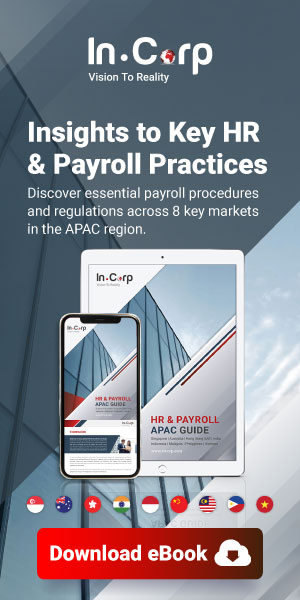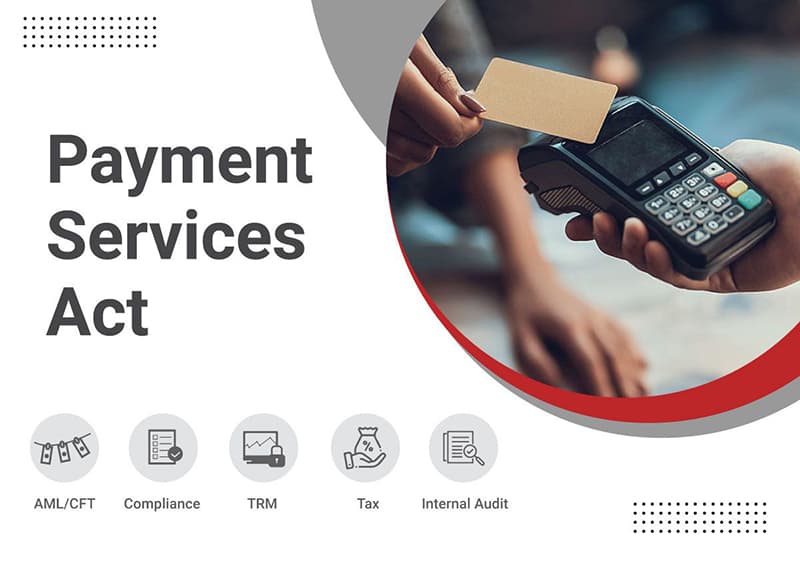What is Singapore Payment Services Act?
The Singapore Payment Services (PS) Act is a forward-looking and flexible framework for the regulation of payment systems and payment service providers in Singapore. It is a framework that seeks to unify and streamline the regulatory requirements for various payment services provided in Singapore. The PS Act was passed by Parliament on 14 January 2019 and came to effect on 28 January 2020.
Primarily, the PS Act regulates the following seven types of licensable payment services:
- Account issuance services;
- Domestic money transfer services;
- Cross‑border money transfer services;
- Merchant acquisition services;
- E-money issuance services;
- Digital payment token services; and
- Money‑changing services.
The PS Act provides for regulatory certainty and consumer safeguards while encouraging innovation and growth of payment services and FinTech.
The PS Act serves two main objectives. First, to protect the financial stability of Singapore by ensuring fair competition among market participants. Second, for the Monetary Authority of Singapore to establish a licensing regime and provide direct oversight of payment systems and payment service providers to ensure that they comply with the Anti Money Laundering and Countering the Financing of Terrorism regulations.
Prior to the PS Act, the regulation of payment services was governed by the now repealed, Payment Systems (Oversight) Act and the Money-changing and Remittance Businesses Act.
What is the role of the Singapore Payment Services Act?
The PS Act provides a single regulatory framework for payment services as a result of the growing convergence across various types of payment activities. In essence, it involves two regulatory schemes:
- Designation regime.
- Licensing regime.
The Act also expands the regulatory scope of the Monetary Authority of Singapore as mentioned earlier to include the seven types of licensable payment services.
The Act also sets up a risk-oriented regulatory structure flexible enough to suit the various services offered by the market players.
Designation Regime
The designation regime is meant for payment systems that play a critical role in the Singapore financial system’s security and efficiency. In other words, certain payment systems are designated for closer supervision if they are key in the safety and efficiency of the financial system.
There are three designation categories:
- Systemically Important Payment Systems (SIPS).
- System-Wide Important Payment Systems (SWIPS).
- Any other designation which authorities deem is in the public interest to designate as such.
SIPS are systems whose disruption could affect the other participants or a systemic disruption to the financial system of Singapore like the MAS Electronic Payment System.
SWIPS are systems whose disruption does not directly disrupt the financial system but could affect public confidence in the payment systems or the financial system.
Systems that fall under SWIPS include the Singapore Dollar Cheque Clearing System, the US Dollar Cheque Clearing System, Fast and Secure Transfers, the Inter-bank GIRO (IBG) System, and the Network for Electronic Transfers.
Licensing Regime
Under the licensing regime, payment service providers are required to obtain a license if they provide payment services specified under the PS Act. Some of the payment services under the law include:
- All services that offer payment accounts to customers or include transactions required by a payment account like non-bank credit cards and e-wallets. The law however exempts licenses for service providers that allow merchants to process mobile or e-commerce payments. These service providers let businesses accept credit and debit card payments without setting up a merchant account through a bank.
- All services related to e-money agencies like crypto money (cryptocurrencies).
- All services that facilitate the domestic transfer of funds within Singapore, such as online payment gateways and physical payment kiosks.
- All services that perform cross-border transfer of funds into and out of Singapore.
- All services that facilitate the buying and selling of foreign currencies in Singapore, including online payment service providers and any firms involved in the exchange of physical currency.
- All services that involve providers handling payments on behalf of merchants like the point-of-sale card terminals.
Data communication platforms that transmit financial information and market participants that provide services to other payment service providers and financial institutions are not required by the PS Act to get a license.
What types of licences are granted under the PS Act?
There are three main licence classes for the new licensing framework:
- Money-changers Licence Service providers can only provide money-changing services such as buying or selling foreign currency notes. Companies that provide other payment services must hold a standard payment institution licence or major payment institution licence instead. This license basically works the same way as it did under the previous MCRBA.
- Standard Payment Institutions Licence (SPIs) Service providers may provide any combination of the above seven defined payment services, but below the specified transaction flow or e-money float thresholds as set out in the PS Act. These limits are as follows:
- The average monthly payment transactions for any activity must be below SGD 3 million (average over a calendar year).
- The average daily e-money float must be below SGD 5 million (average over a calendar year).
- Major Payment Institutions Licence (MPIs) This license is only for businesses with major payment institution licenses. These businesses can carry out all seven types of payment services above the specified transaction flow or e-money float thresholds. As these institutions carry out large transactions and therefore pose a greater risk, they are subjected to more stringent regulations.
A firm providing any payment services other than money-changing will be an SPI unless its payment transactions exceed certain volume thresholds in which case it must be licensed as an MPI.
In Conclusion
The PS Act requires major payment institutions to protect customer funds. It empowers the Monetary Authority of Singapore to impose technology risk management requirements on all licensees. Payment service businesses must ensure that there is adequate risk governance and implementation of mitigation strategies. Special attention must be paid to areas such as user authentication, data loss protection, and cyber-attack prevention and detection.
The PS Act provides a new framework for regulating payment systems and payment service providers in Singapore. It is meant to protect the consumer and ensure there is confidence in the use of e-payments.
The PS Act now covers modern types of payment services that were not previously covered under the law.
Payment systems are absolutely important to our daily activities as individuals and to the smooth functioning of the economy. They allow money to fulfil its role of accepted means of exchange when purchasing goods or services. The PS Act has ensured that there are clear guidelines on how to interact with payments in the fast-growing sector of FinTech.
FAQs
- The Singapore Payment Services (PS) Act is a forward looking and flexible framework for the regulation of payment systems and payment service providers in Singapore.
- The Payment Services Act was passed by Parliament on 14 January 2019, and came to effect on 28 January 2020.
- The Singapore PS Act regulates the following 7 types of licensable payment services:
- Account issuance services;
- Domestic money transfer services;
- Cross‑border money transfer services;
- Merchant acquisition services;
- E-money issuance services;
- Digital payment token services; and
- Money‑changing services.
- The PS Act provides a single regulatory framework for payment services as a result of the growing convergence across various types of payment activities. In essence, it involves 2 regulatory schemes:
- Designation regime.
- Licensing regime.
- There are three main licence classes for the new licensing framework:
- Money-changers Licence
- Standard Payment Institutions Licence (SPIs)
- Major Payment Institutions Licence (MPIs)
Our team will guide you step by step on Payment Services Licence application, draft policies and procedures and provide compliance services.
About the Author
InCorp's content team includes talented copywriters from our regional group and globally. We contribute informative, thought leadership, and market-trending articles to guide aspiring business entrepreneurs to a higher level across the Asia-Pacific region.
More on Singapore Guides


